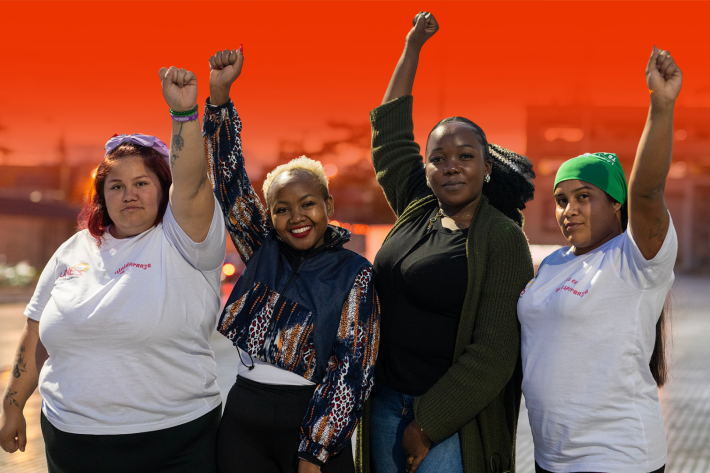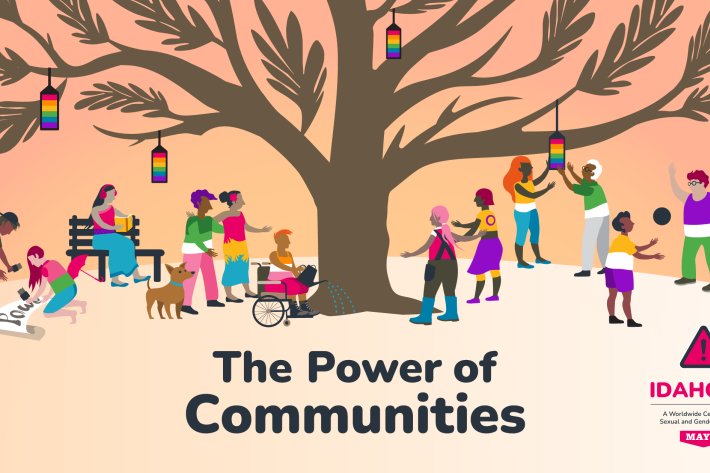
Spotlight
A selection of news from across the Federation
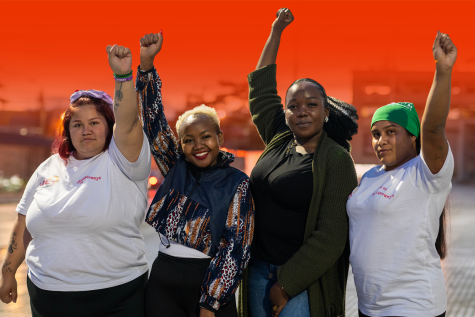
We Made It a Charter: IPPF’s Declaration of Values
Proud, bold, and united: we are values-led.
Filter our news by:

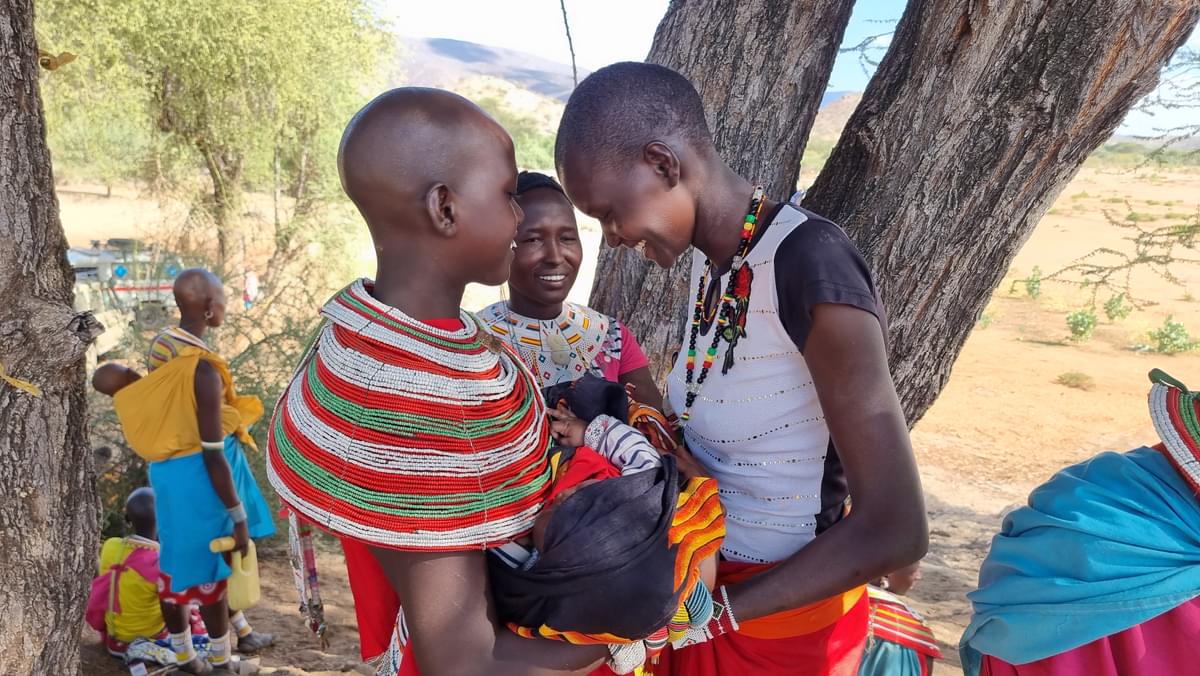
| 30 September 2024
EmpowHER: IPPF Announces New Global Initiative to Empower Women, Girls, and Marginalized Communities
The International Planned Parenthood Federation (IPPF) has launched the CAD48 million "EmpowHER" project in partnership with Global Affairs Canada. The initiative aims to improve sexual and reproductive health and rights (SRHR) for marginalised women, girls, and underserved communities across at least 11 countries. EmpowHER will enhance access to sexual and reproductive health (SRH) care, deliver comprehensive sexuality education, and combat growing threats to SRHR through policy reform and advocacy. This partnership aligns with Canada’s commitment to gender equality and empowering young people to make informed choices about their well-being. Ensuring Inclusive SRHR Delivery for Women, Girls and Marginalise Communities (EmpowHER), is a large-scale initiative that will strengthen access to SRHR for the most marginalised and underserved groups, particularly women and girls. It will support millions of women, girls, and vulnerable communities in Burkina Faso, Democratic Republic of Congo, Ghana, Guinea, Guinea-Bissau, Kenya, Mauritania, Sudan, Zambia, Uganda, Togo, Colombia, Ecuador and Pakistan. Through an intersectional, human rights-based feminist approach, EmpowHER will increase access to much needed rights-based SRH care, including access to person-centred safe and legal abortion care. It will deliver critical comprehensive sexuality education (CSE) to empower young people to act on their sexual and reproductive rights (SRR) by expanding their access to quality, rights-based, and gender-sensitive CSE. Furthermore, this initiative will also counteract the growing threats to women’s and girls' sexual and reproductive health rights, by providing urgent support to improve policies and strengthen the capacity of movements and coalitions. Dr. Alvaro Bermejo, Director-General of IPPF, emphasised the critical need to protect and expand access to SRHR. “This new project will continue our mission of empowering women and girls, particularly in Sub Saharan Africa, to make informed decisions about their bodies. We will not only increase access to much needed SRHR services including safe and legal abortion but will also deliver CSE to young people and tackle the rollback of SRHR rights.” “We’re grateful to the Canadian Government for their support and continued partnership.” The funding, unveiled during the United Nations General Assembly (UNGA), is part of Canada’s 10-Year Commitment to Global Health and Rights and aligns with its Feminist International Assistance Policy. Canada is committed to securing a more gender-equal world in which young people are empowered to exercise their rights and make free and informed decisions about their sexuality and well-being. "By supporting the EmpowHER initiative, Canada is taking another step towards achieving gender equality and empowering women and girls, in all their diversity, worldwide. This project will not only improve access to vital sexual and reproductive health services, but also ensure that the most marginalized communities can exercise their rights and make informed choices about their health and future. Together, we will strengthen partnerships that champion these rights and protect the progress we've made", said the Honourable Ahmed Hussen, Minister of International Development, Canada.
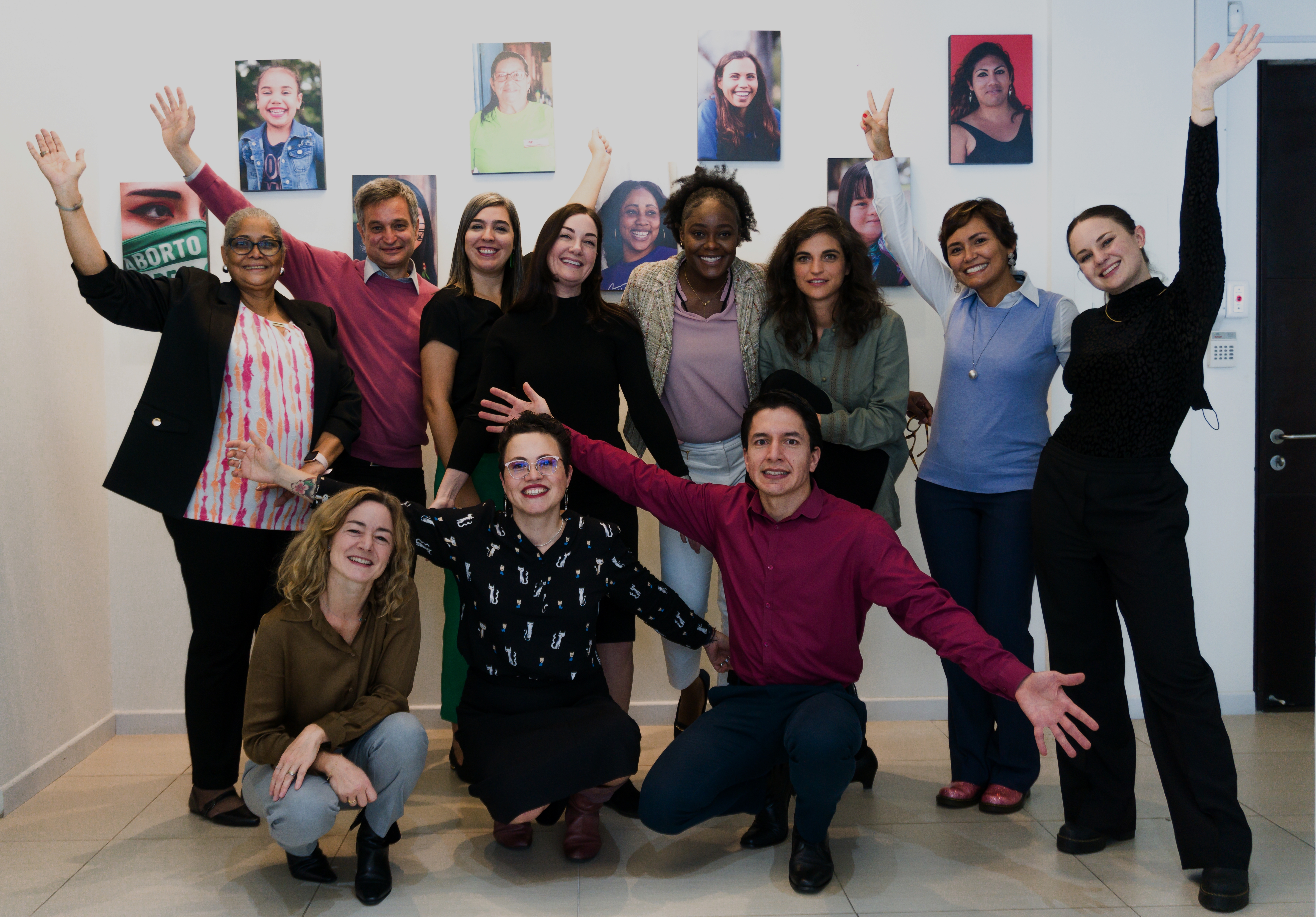
| 18 March 2022
IPPF Office in Bogota
We are overjoyed to announce the opening of the first of two locations of the International Planned Parenthood Federation - Americas and the Caribbean Regional Office (ACRO), in Bogota, Colombia. IPPF Director-General Dr. Alvaro Bermejo, IPPF ACRO's Regional Director Eugenia López Uribe, Deputy Regional Director Dona Da Costa Martinez, and IPPF Director of External Relations Mina Barling were joined by team members from the ACRO and London Offices to reinforce the commitment to the fight for rights and access to sexual and reproductive services in the region. This is an especially exciting time as Colombia stands as the latest champion to step forward to protect the bodily autonomy of everyone with the possibility of gestation, with a recent Constitutional Court victory legalizing access to abortion until 24 weeks. The new IPPF Americas and the Caribbean Regional Office serves Member Associations and Collaborative Partners in over 24 countries across the region, and which are growing in their movement building and service delivery capabilities, including comprehensive sex education, provision of contraceptive, safe abortion, and maternal care and responding to humanitarian crisis. IPPF pride ourselves on being local through our members and global through our network. At the heart of our mission is the provision of – and advocacy in support of – integrated healthcare to anyone who needs it regardless of race, gender, sex, income, and crucially no matter how remote. Volunteerism is central to our healthcare delivery. It underpins the vital work of our members and their teams, whether through community outreach and distribution of contraceptive care or the regional Youth Action Movements championing change.

| 22 February 2022
Colombia decriminalizes abortion
The Colombian Constitutional Court has decriminalized abortion up to 24 weeks in another victory for the Green Wave sweeping through Latin America. The historic decision follows years of campaigning by women's right's activists across Colombia and came off the back of two lawsuits that asked the court to declare article 122 of the penal code, that "the woman who causes her abortion or allows another to cause it, will incur a prison sentence from sixteen (16) to fifty-four (54) months" as unconstitutional. Having delayed several times over the past two years, the court called an extraordinary meeting on Monday 21st February 2022, and took just a few hours to come to its decision - ruling five against four to decriminalize the healthcare procedure. The decision will go into effect immediately. ProFamilia, IPPF's Member Association in Colombia, and Colombia's largest provider of legal abortion care was heavily involved in pushing to extend the rights of those needing to access abortion care. Colombia follows other countries in the region such as Mexico and Argentina, while parliamentarians in Ecuador last week eased regulations to allow access to abortion in cases of rape. Marta Royo, Executive Director for Profamilia, IPPF's Member Association in Colombia, said: "Today is a ground-breaking moment for the people of Colombia and a long-overdue guarantee of reproductive rights and dignity for all those who need abortion care, especially poor and rural women who bear the brunt of restrictive abortion policies. "The decriminalization of abortion up to 24 weeks in Colombia and the Green Wave movement across Latin America is centred not just on public health, but also the full lives, citizenship and human rights of girls, adolescents, and women – who, for multiple reasons, including inequity, access to education, gender-based violence and barriers to healthcare – continue to face unintended pregnancies. "The freedom for women to finally make their own choices about their pregnancies and their bodies is fundamental to disrupting the cycle of poverty that so many in Colombia face. This monumental decision is also a win for the dedicated health care providers, who will finally be recognized as people who simply care about the needs of others." While Colombian women have supposedly been able to access abortion care since 2006 under three circumstances: if their life or health is at risk, in cases of fatal foetal abnormalities, or if the pregnancy is the by-product of rape or incest, in reality, the criminalization of abortion persisted. The Guttmacher Institute found that less than one per cent of the estimated 400,000 abortions carried out each year in Colombia are performed legally, with women, especially poor, rural, vulnerable and marginalized women, facing significant barriers to accessing safe and timely abortion care. Many Colombian women are instead forced to carry their pregnancies to term or else seek other methods to end them. Figures collected by ProFamilia showed that during 2020, there were at least 26,223 unsafe abortions across Colombia, a startling amount for which consequences range from infection to life-changing injuries to death. As per the previous abortion law, other women have been imprisoned for up to four and a half years for having an abortion, even in cases where abortion should have been legal. In a shocking example of discrimination, data collected showed that poor rural women were more likely to be charged, with a third of those who faced charges also survivors of sexual violence. Eugenia Lopez Uribe, IPPF's Regional Director for Americas and the Caribbean Region, said: "Today Colombia took another step in the right direction for gender equality and full human rights for all, and we are incredibly proud of IPPF's Member Association, ProFamilia, for their tireless work alongside thousands of activists across Colombia and Latin America "This 24-week decriminalization is historic in the region and especially remarkable when we consider the current fragility of abortion rights globally and the anti-choice movements which continue to plague nations across the world, including in countries close to home like the United States of America. "While today we are celebrating this historic decision, the Green Wave is strong and growing, and the fight for reproductive rights and justice will not end until every person can access high-quality sexual and reproductive healthcare when and where they need it."








